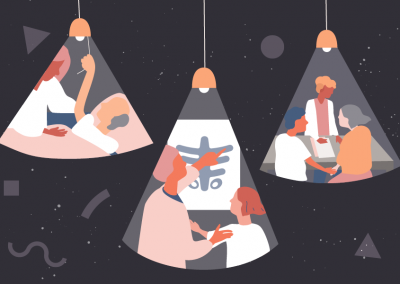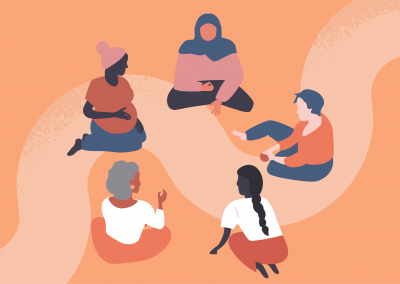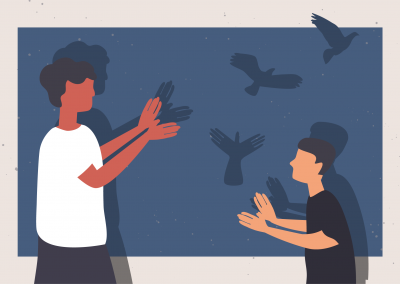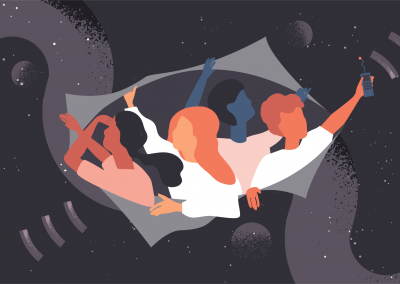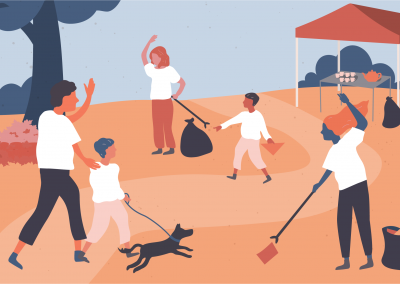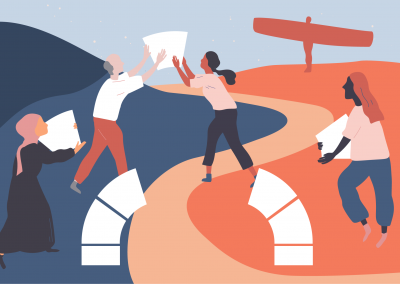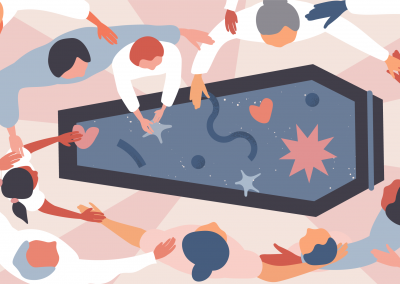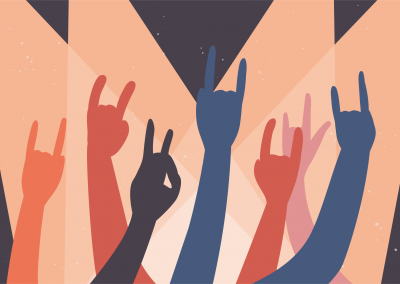Gateshead Community Bridgebuilders
Empowering and connecting communities through devolved decision-making
Case Maker –> Stories –> Gateshead Community Bridgebuilders
‘Working relationally’ sounds lovely. The idea of it is warm, relaxed, cosy.
‘We have a very relational way of working,’ says Christine Frazer, one of Gateshead’s Community Bridgebuilders. ‘And it freaks people out.’
‘In the first six months in the job, each of us had a panic and a wobble: Am I any good at this?… Can I be any good at this?… There’s no boss going: You got four out of ten, now your target is to get six out of ten.’
Relationship-centred practice may sound comfy and cosy; in reality, it can be challenging and uncomfortable, especially if we are used to more rigid, prescriptive work environments. Relational work can be much more open-ended, dynamic and surprising.
Gateshead’s Community Bridgebuilder programme grew out of the Lankelly Chase Foundation’s decision to devolve money and decision making to the local level in the place-based work they arefunding. ‘They recognized that a group of people in London weren’t best placed to make decisions about the North East of England’, says Andy Crosbie, Director of Collective Impact Agency, a local community interest company.
‘I set up a team based on relationships I held in the borough and we had a series of conversations. But when we discussed what to do with the money, I was shocked that the conversation didn’t yield anything terribly interesting. It made me think: We don’t have the right people around this table yet.’
Asking people in the know
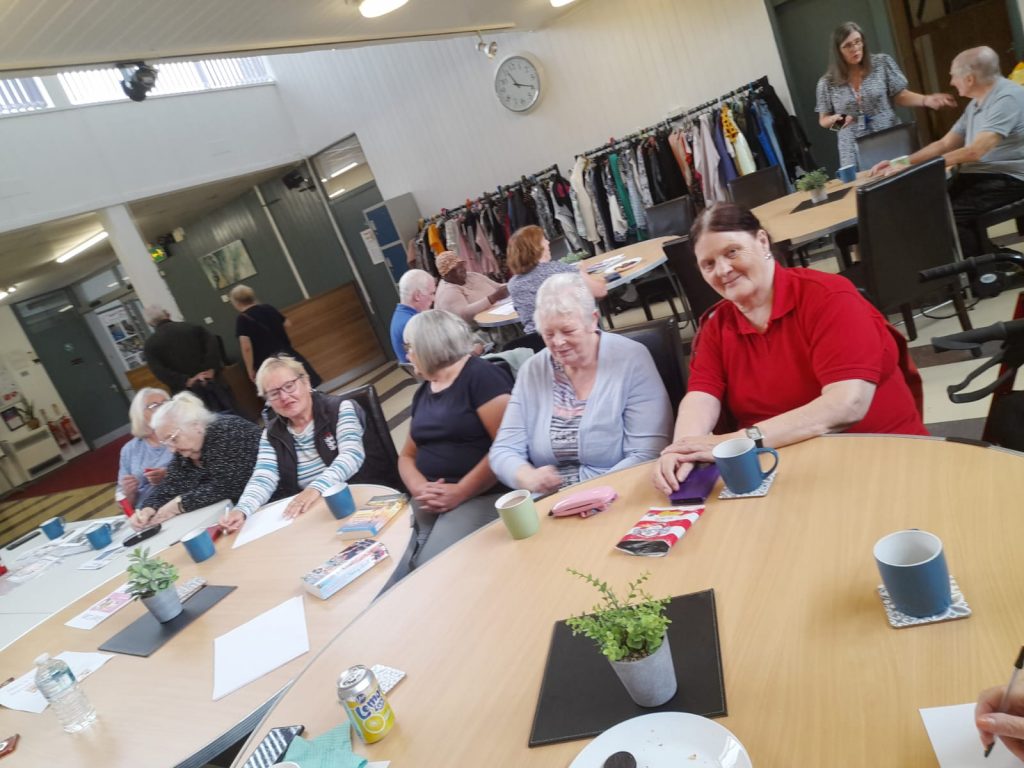
Photo credit: Christine Frazer
That moment was the catalyst for locating and recruiting the Gateshead Community Bridgebuilders: people with lived experience, who are ‘deeply embedded in marginalised communities, trusted by that community, and already active in building community there.’
Finding the Bridgebuilders involved ‘talking to the main existing community weavers,’ says Christine, ‘like the heads of community centres. It was about the people in the know identifying people.’
Andy and his team met with a group of interested people and explained the Bridgebuilder role: working alongside the community to identify the change they want to see and how they want to spend the funds.
We were apologetic. We said: We know this is vague, but that’s kind of the point. And the response was: This is amazing; you’re going to let us fill in the blanks. We’ve never been given that opportunity before.
To apply, prospective Bridgebuilders were invited to respond to three questions in the medium and language of their choice. ‘Afterwards,’ says Andy, ‘one of our Bridgebuilders said: If you’d asked me for a CV, I wouldn’t have applied.’
Seven Community Bridgebuilders were recruited. Each is hosted by an organisation that works with and in their community. ‘So I’m based here at Bensham Grove Community Centre,’ says Christine. ‘I’m working with the community at Teams and Dunston and a lot of people from my community pass through here, work here, socialise here. So it makes sense that I’m on the ground in the space, living and working where the enquiry is happening.’
Hyper-local decision making
Bridgebuilders have the time and freedom to nurture and expand their network of local relationships. For Christine, being alongside the community and engaging existing local groups is a big part of the role. ‘We developed a methodology,’ she says. ‘We’d chat to a local group and say: You’ve got two thousand pounds. You can spend it on anything that’s legal, safe and will improve the community. You can’t give it all to one person. Then we walk alongside them as they spend that money.’
Christine describes how that approach played out with a local men’s group: former servicemen, experiencing PTSD.
It took me six months to get an invite because I’m a woman. I sat outside their community centre door sometimes until one day, one of them invited me in: Y’alreet, do you want a cup of tea?
Christine explained the process and invited them to get involved. ‘The guys spent a bit of the money on a local trip,’ she says. ‘They went to the dodgems and had a McDonalds and discussed how to spend the rest of the money.’ The group decided to buy a defibrillator and first aid training for everyone involved with their community centre. ‘Next thing was getting a bin for dog muck outside,’ says Christine.
Devolving funding and decision making to local groups both relied on and reinforced existing relationships, providing a shared focus and catalysing conversations about the change they want to see in their area. The concrete hyper-local outcomes were important, but as important were the spreading and deepening webs of relationships within and across communities as the sense of common purpose began to grow and snowball.
The men’s group used their next pot of funding to train as mental health first aiders, ‘so they could become that support to an extent in their community. And that led to the most incredible local WhatsApp group, who organise a yearly Blues Buster festival in January and throw a great big party. The men’s group are helping people to feel safe and happy to talk about mental health.’ Now they’re thriving. ‘The bonds have deepened,’ says Christine. ‘Their trajectory is onwards and upwards with a new voice and a new power to know that they can make decisions on their own.’
This example gives a sense of the gradual way that the impact of the Bridgebuilders’ work unfolds: identifying existing webs of relationships, building on them, working alongside people, supporting groups to feel greater agency and make meaningful decisions, then weaving the efforts of different local groups together.
Part of the power of this approach is the way that Bridgebuilders can create connections and share learning between their communities. For example, the community mental health training that began in Teams and Dunston has since been spread by other Bridgebuilders into their own communities. Elsewhere Bridgebuilders have run events together, like an Inclusive Christmas celebration, dreamed up by Hakan Akarli, a Bridgebuilder in the local Turkish community. Two other Bridgebuilders, Fozia Haider and Afroz Qureshi, who are both working with Muslim women and the local South Asian diaspora, joined forces to set up a swimming group for women from minoritised communities.
Individual efforts can be amplified and multiplied by Bridgebuilders in other communities. Connections and relationships can be forged between groups that might not ordinarily intersect. The Bridgebuider approach is very different from more traditional models of outside agencies stepping in to meet local needs.
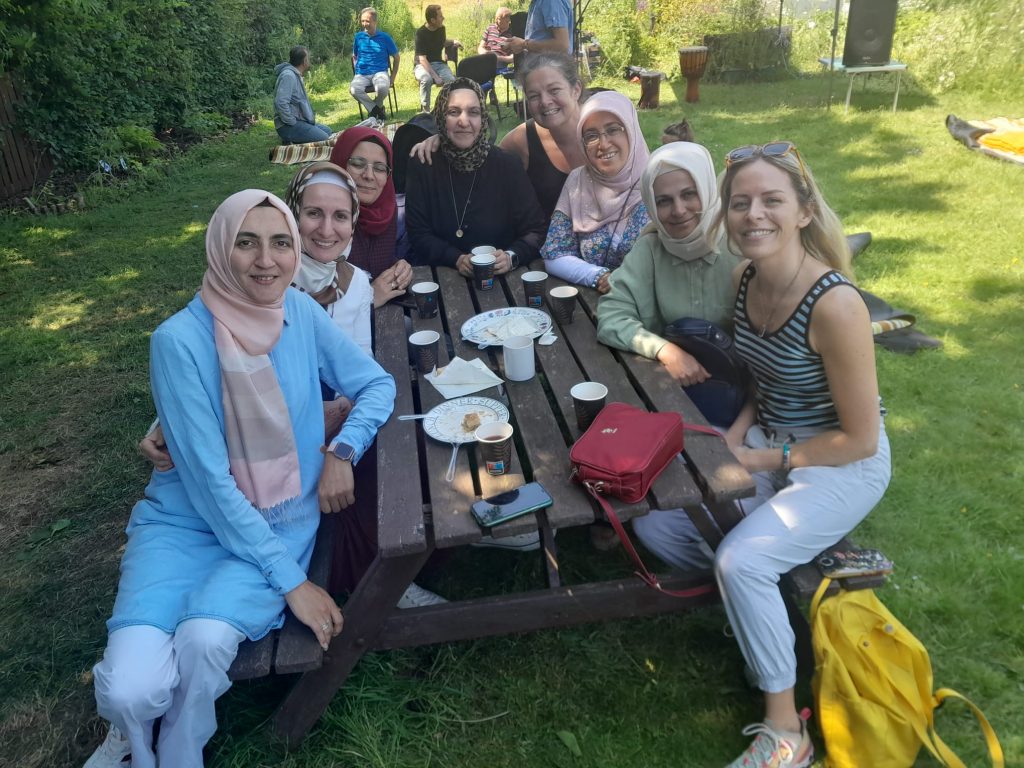
Photo credit: Christine Frazer
Expanding the web
Although relationships are not reliant on money, the devolved funding in Gateshead shows the way that money can be used to deepen and spread local relationships and to break down barriers to social integration.
‘A little bit of money in the community can really make a difference,’ says Chris O’Toole, the manager of Bensham Grove Community Centre, where Christine is based. ‘But it’s about listening to the community themselves. For example, we’ve been able to put aside money for women wearing the hijab to take a taxi to the community centre, because they feel vulnerable travelling on buses. That enables them to meet up regularly. Just being able to pay for transport makes a huge difference.’
As a result of Christine’s work there has been an increase in both the number of groups involved with the community centre, and the number of people from existing groups. ‘Like the Turkish community,’ Chris says, ‘who were never involved before but are now really engaged. It’s widened the scope of what we do and the relationships we have as a community.’
Chris describes the way that the web of local relationships is getting both wider and thicker.
There’s lots of little tentacles that get created and that we build on. I couldn’t explain to you how all of these tentacles mesh together. It’s about how people know each other: Oh, I know such and such. Oh, he’s got one of them. It’s great but it’s very difficult to pin down.
In a time of increasing polarisation, building trusting relationships across communities is more important than ever. Through the Bridgebuilders combined work, communities who might not see themselves as having much in common, come together in shared spaces around a shared purpose.
It can be easy to romanticise this kind of work, but it presents its own challenges. ‘It’s not all hearts and flowers,’ says Chris. ‘There’s competition for funding. People have very strong opinions about what should and shouldn’t happen.’
Openness and unlearning
For Christine, the sheer openness of this kind of relational working is its biggest challenge. She came from a much more structured job. ‘That job was frustrating,’ she says, ‘but I was held in a system, in a box, and I was safe, because there was no wiggle room at all.’ As a Bridgebuilder, she says, ‘not having Do this on a Thursday or Fill in this spreadsheet in that way, I got really disillusioned and I felt very lonely in my working life. I felt like everybody around me fitted and I didn’t. I’d go to a conference and have that conversation: Who are you and what you do? And I’d be like: I’m a Community Bridgebuilder. I kind of work it out as I go along. That didn’t sit well with an awful lot of people and didn’t sit well with me. I had this torment inside: Am I doing this well?’
How do you know if you’re doing this work well?
You can’t measure love and you can’t measure kindness and understanding – and that’s something we deal with in spades here. So how do we prove it’s working? We write anecdotes, we look at the amount of people we’re supporting. So we have evidence and we have understanding – but we’re kind of working outside existing systems.
Relational work often skirts existing systems, which are not designed to be relational. The importance of a project like this is not just the difference it makes on the ground, but the model it offers the wider system and the permission it grants to others who want to work through relationships.
We’ve received criticism about the openness of this way of working,’ says Andy. ‘It’s so countercultural. People are so used to being told what to do, what good looks like, and being measured to within an inch of their life. There’s a process of unlearning needed – and this is one of the core bits where relationships are paramount.
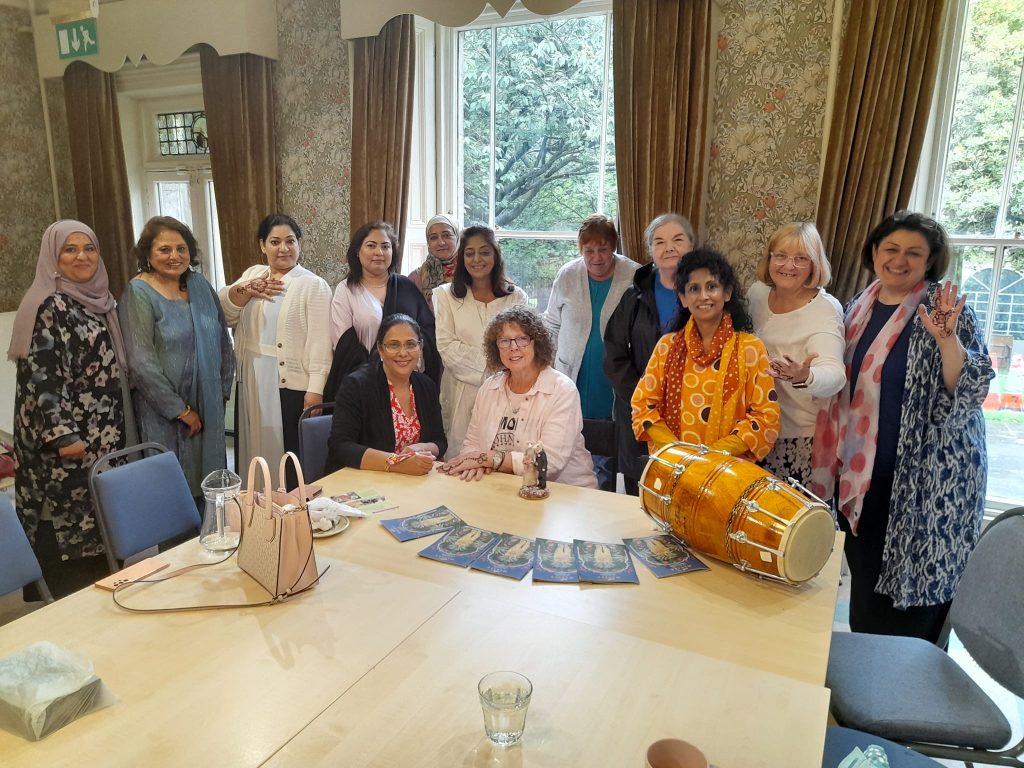
Photo credit: Christine Frazer
Good decisions, good relationships
Why all the emphasis on relationships in the first place? Isn’t the issue Lankelly Chase identified an information problem, not a relational problem? If decision makers had better local insights, couldn’t they take the right decisions and administer funds?
This way of thinking misses the fact that community change is a dynamic process that cannot be imposed on people without their support, participation and leadership. ‘Relationships have to be the start of any decision-making body,’ says Christine. ‘Because you can’t make good decisions without good relationships.’ If a key challenge for communities is feeling voiceless, disempowered and disconnected, interventions that don’t involve building voice, power and connection risk exacerbating the very challenges they hope to address.
Relational system-level change
This might look like an example of hyper-local, small-scale change. In fact, it is a radical reimagining of system-level change, with normal procedures flipped on their head. This could have been a prescriptive, arms-length operation. Instead the funder put their faith in local, relational decision making. Through handing over money and decision-making power to communities, the Bridgebuilder approach aims to ‘encourage people to become more civic minded,’ says Christine, and equip them ‘to make change within their community.’
Devolved decision making requires local groups to come together in different ways, to have different conversations and build different capacities. The process of shared decision making is as significant as the changes on which money is spent.
The next step for the Bridgebuilders is to keep developing the networks of relationships.
This is very much the start of a web. The dream is that we get more Bridgebuilders from other marginalised communities. We’re missing a youth focused Bridgebuilder; there are spaces, places, communities we’ve not yet reached.
Hopefully as time passes that web gets larger. We’re not just creating something to be done in a three-month period – this is about investing in communities for the next ten, twenty years.
The Gateshead Community Bridgebuilders
|
Name |
Community |
Areas of focus |
|
Hakan Akarli |
Turkish community, refugee and asylum seeker community |
Education, cross-cultural connections, young people |
|
Eric Bamela |
African diaspora. refugee and asylum seeker community |
Cross-cultural connection, sport and wellbeing, young people |
|
Zahra Bazarganianpour |
Migrant, refugee and asylum seeker community |
Language justice, support for migrants |
|
Fozia Haider
|
Muslim women, South Asian diaspora |
Women’s health |
|
Paul Kerr
|
d/Deaf community |
Connecting d/Deaf communities, building leadership opportunities for young d/Deaf people, mental health |
|
Afroz Qureshi
|
Muslim women, South Asian diaspora |
Female empowerment, cross-cultural connection |
|
Christine Frazer (Bridgebuilder and Organiser)
|
Teams and Dunston locality |
Mental health, community safeguarding, cross-cultural connection, stronger neighbourhoods |
Reflection questions
Digging deeper
- What kinds of relationships and relational work might devolving money and power make possible?
- What could count as meaningful evidence of the impact of this kind of work?
- How might healthy scrutiny and accountability look within more open-ended relational work?
Applying the learning
- What reflections does this story give you for your own context?
- What would you see as the challenges of this kind of relational practice in your own work?
More stories
The Relationships Map
The Relationships Map is a space for anyone who believes in the importance of relationships to find one another, share ideas and resources, feel part of something bigger, and realise more than the sum of our parts.

